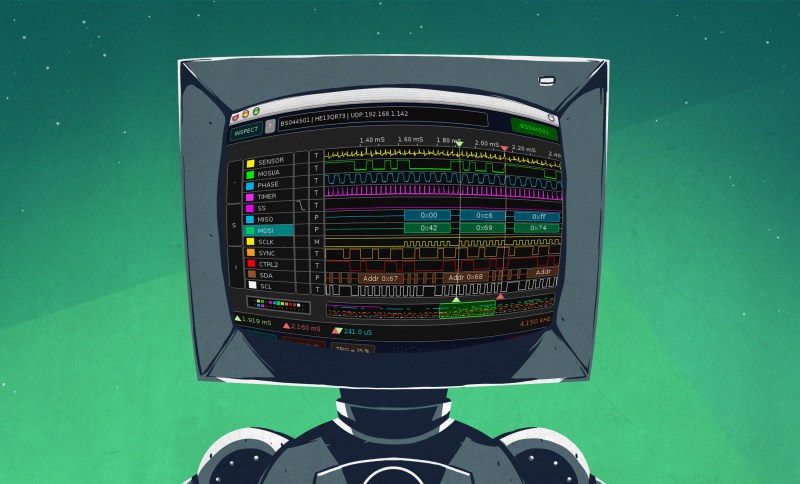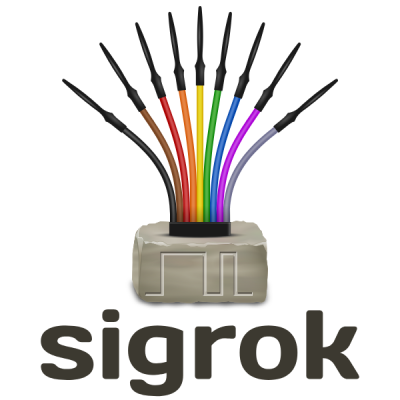
While we were working on the podcast this week, Al Williams and I got into a debate about the utility of logic analyzers. (It’s Hackaday, after all.) He said they’re almost useless these days, and I maintained that they’re more useful than ever. When we got down to it, however, we were actually completely in agreement – it turns out that when we said “logic analyzer” we each had different machines, and use cases, in mind.
Al has a serious engineering background and a long career in his pocket. When he says “logic analyzer”, he’s thinking of a beast with a million probes that you could hook up to each and every data and address line in what would now be called a “retrocomputer”, giving you this god-like perspective on the entire system state. (Sounds yummy!) But now that modern CPUs have 64-bits, everything’s high-speed serial, and they’re all deeply integrated on the same chip anyway, such a monster machine is nearly useless.
Meanwhile, I’m a self-taught hacker type. When I say “logic analyzer”, I’m thinking maybe 8 or 16 signals, and I’m thinking of debugging the communications between a microcontroller, an IMU, or maybe a QSPI flash chip. Heck, sometimes I’ll even break out a couple pins on the micro for state. And with the proliferation of easy and cheap modules, plus the need to debug and reverse commodity electronics, these logic analyzers have never been more useful.
So in the end, it was a simple misunderstanding – a result of our different backgrounds. His logic analyzers were extinct or out of my price range, and totally off my radar. And he thinks of my logic analyzer as a “simple serial analyzer”. (Ouch! But since when are 8 signals “serial”?)
And in the end, we both absolutely agreed on the fact that great open-source software has made the modern logic analyzers as useful as they are, and the lack thereof is also partially responsible for the demise of the old beasts. Well, that and he needs a lab cart then to carry around what I can slip in my pocket today. Take that!

0 Commentaires